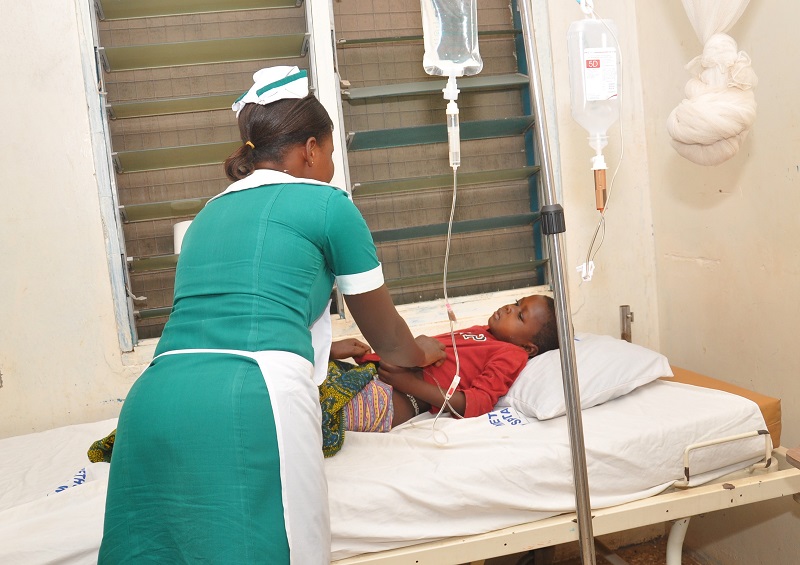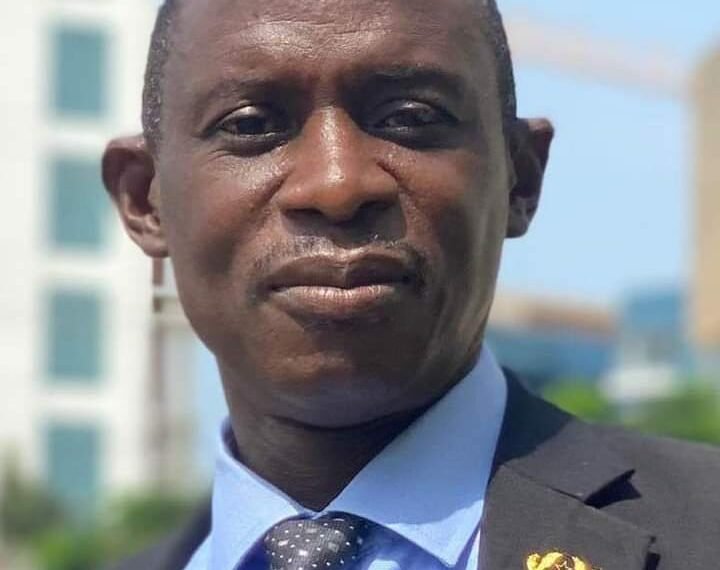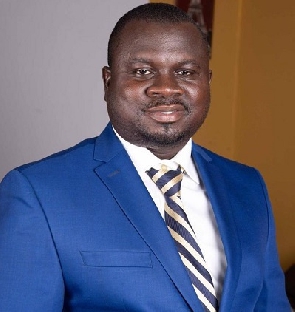The Ghana Registered Nurses and Midwives Association (GRNMA) has escalated its ongoing protest action, accusing the government of deliberately neglecting their welfare and frustrating the implementation of previously agreed conditions of service.
This development marks a critical point in the Association’s long-standing standoff with the government over what they describe as consistent delays and indifference towards their professional needs.
In an exclusive interview with Vaultz News, the National Public Relations Officer of the Association, Mr. Joseph Krampah, minced no words in expressing the Association’s deep disappointment with the government’s failure to honour its commitments.
According to him, the GRNMA has exercised patience and engaged in several rounds of dialogue, but the government continues to renege on promises with no credible justification.
“In 2022, we were supposed to review the 2020 conditions of service because it takes every two years to revisit it and then do negotiations. For 2022, it could not come on.
“Until 2023, when we started agitating that they called us to a meeting, which even lasted up till 2024, which even means that, between 2022 and 2024, there should have been another negotiation. The 2022 one just stretched up to 2024, and by May 2024, we had finished. Everything was done, so it should be implemented”.
National Public Relations Officer of GRNMA, Mr. Joseph Krampah
Mr Krampah further pointed out that since January, the association has had five meetings with the new administration for the enforcement of its already signed agreement, but to no avail. He decried the failure of the Minister of Health to push the Finance Minister to sign and implement it.

No Hidden Political Motive
The frustration within the Association is palpable. Mr. Krampah emphasized that there is no hidden political motive behind the strike—only a deep sense of injustice and a call for the government to demonstrate seriousness.
He underscored the critical need for the government to start prioritising the welfare of its membership and avert further actions that may exacerbate the current strike that the association has undertaken against the government.
As the strike enters a critical phase, its impact is beginning to manifest across public healthcare facilities nationwide. Initially, the industrial action was limited to the Out-Patient Departments (OPD) of hospitals.
However, according to Mr. Krampah, the government’s move to replace striking workers with so-called “splitter groups” forced the GRNMA to intensify its actions.
“We had a planned roadmap. It was supposed to begin with OPD, then escalate if necessary. But the government’s attempt to circumvent the strike by using other personnel pushed us to suspend emergency services as well as specialities like ophthalmic and perioperative care”.
National Public Relations Officer of GRNMA, Mr. Joseph Krampah
He noted that the Association has over 17 specialised nursing units, all of which have now joined the strike, insisting that if the government fails to respond by June 9, 2025, the Association plans a total withdrawal of services nationwide.

Timing of Strike
Despite criticism regarding the timing of the strike, given the relatively short period the current administration has been in office, Mr. Krampah firmly rejected suggestions that the Association should have waited.
“Governments always say how important our profession is. If they really believe that, then they must act quickly to ensure our working conditions are dignified. This isn’t about how long they’ve been in office; it’s about doing the right thing, now.”
National Public Relations Officer of GRNMA, Mr. Joseph Krampah
He further warned that if the impasse is not resolved soon, the country’s public health system will grind to a halt, and the consequences will be dire, not because nurses and midwives want to harm patients, but because they can no longer work under conditions that undermine their well-being and professional dignity.

A clear message about the boundaries of tolerance when neglect is present is conveyed by the GRNMA’s action. As the government faces mounting pressure to address the issue, it is hoped that the Ministry of Finance and the Ministry of Health will take immediate action to prevent Ghana’s public healthcare system from completely collapsing.
READ ALSO: Governor Asiama Targets Lending Rate Below 10% Within Next 4 Years



















